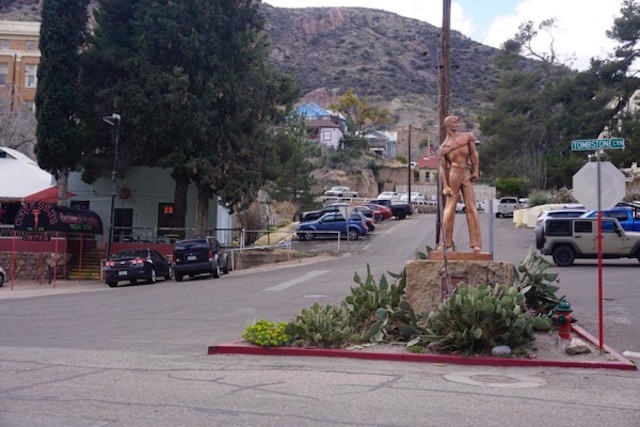Arizona DEQ Claims US EPA Has No Jurisdiction Under Federal Clean Water Act
This is a followup to my 2/19/19 post about the raw sewage discharge in Bisbee, Arizona, see:
John Eyre from Arizona DEQ followed up and left a message on my phone tape.
According to Mr. Eyre, the case was closed.
Mr. Eyre stated that the Arizona DEQ issued a Groundwater Protection Program permit to the City that specifically allows them to discharge raw sewage to the street and local streams.
The City will be filing a “Sanitary Sewer Overflow Report” as required by the GPP permit – that’s all. No enforcement action, no corrective action plan.
Mr. Eyre stated that he interviewed the worker, reviewed the permit and will be making slight permit changes to somehow prevent the City from “leaving so much behind”.
Mr. Eyre stated that “I’m all right with that and management is all right with that”.
Well, I assure you that I am not all right with that.
I strongly doubt that the people of Bisbee are all right with that.
And I doubt that the Cochise County Health Department and the US EPA are all right with that.
We will be following up with all of them – particularly US EPA Region 9 Criminal Investigations Division, who called me today.
I don’t know how widespread this practice is, but allowing ADEQ to hide Clean Water Act violations behind a State groundwater permit should not be tolerated by US EPA.
I suspected something improper was going on when I first spoke to Mr. Eyre from ADEQ.
I found it curious that a groundwater permit engineer was responding to a surface water enforcement case.
Mr. Eyre immediately mentioned that the City had been granted “flexibility” due to unusual geology, aging infrastructure, and historical development.
He said that the City was limited in what they could do by permit requirements to protect and restore historic resources.
When I asked Mr. Eyre if US EPA has signed off on that permit “flexibility”, he replied that EPA had no jurisdiction, because these were not “waters of the US”. He stated that only Arizona DEQ had jurisdiction in the impacted Whitewater Draw.
When I asked about faxing him documents (because Mr. Eyre requested that I prepare a map and send him the Police Report), Eyre got nervous and told me not to because the fax in his office was in an open location and you never know who might see the documents. He asked for PDF files emailed to him alone. I found that very odd.
Neither Mr. Eyre or ADEQ surface water permit staff answered my questions about “waters of the US’ and why a groundwater permit governed a surface water discharge situation.
Regardless, I find it remarkable that a State environmental regulatory agency could issue and defend a permit that specifically allows discharge of hundreds of gallons of raw sewage to city streets and local streams.
Aside from the Clean Water Act violations, such a practice is a huge health hazard.
More to follow.

